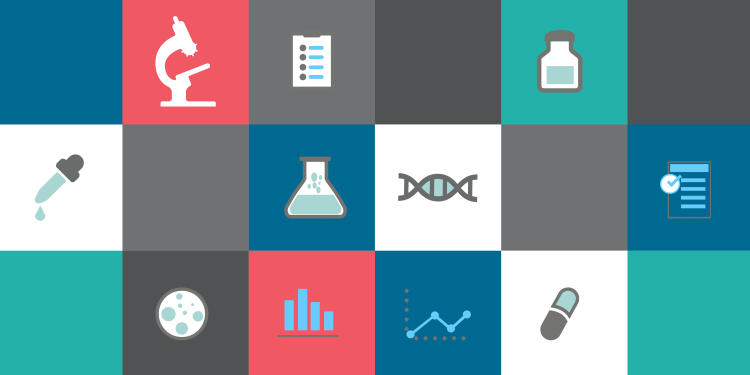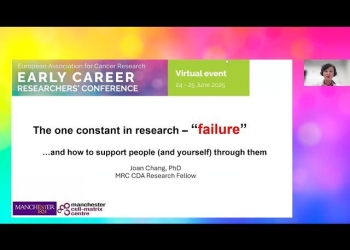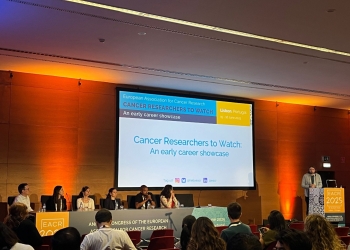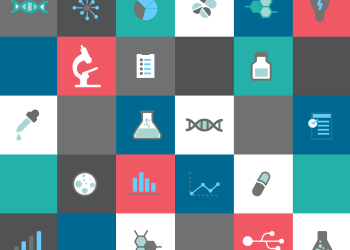The EACR’s ‘Highlights in Cancer Research’ is a regular summary of the most interesting and impactful recent papers in cancer research, curated by the Board of the European Association for Cancer Research (EACR).
The list below appears in no particular order, and the summary information has been provided by the authors unless otherwise indicated.
Use the dropdown menu or ‘Previous’ and ‘Next’ buttons to navigate the list.
Zhao, X., Singhal, A. et al. Cancer Discovery, 14(3), 508-523 (2024).
doi: 10.1158/2159-8290.CD-23-0641.
![]() Summary and graphical abstract by Alexandra Boitor, EACR Scientific Officer
Summary and graphical abstract by Alexandra Boitor, EACR Scientific Officer
Summary of the findings
Many conventional chemotherapeutic agents, such as cisplatin, gemcitabine, olaparib, etc. act by causing DNA replication stress. However, drug resistance often arises through multiple molecular mechanisms limiting the therapeutic potential of such therapies.

Using data from affinity purification mass spectrometry integrated with genomics data sets from current clinical cancer gene panels and human cancer cell lines, and a combination of “interpretable” machine learning and multitask learning Zhao et al developed a method to predict resistance to chemotherapeutics that induce replication stress based on genetic alterations identified in tumour samples. By projecting individual gene alterations onto protein assemblies associated with cancer, the authors identified 41 molecular assemblies, encompassing alterations in hundreds of genes, that modulate treatment response to replication stress-inducing agents. As an example, the authors highlight the prognostic potential of the RTK–JAK–STAT assembly, comprising alterations in more than eight different genes, for predicting response to cisplatin.
By highlighting molecular assemblies associated with multi-drug resistance, this study by Zhou et al opens new opportunities for further research into the molecular mechanisms underlying genetic drug resistance to replication-stress-inducing agents and further drug development.









